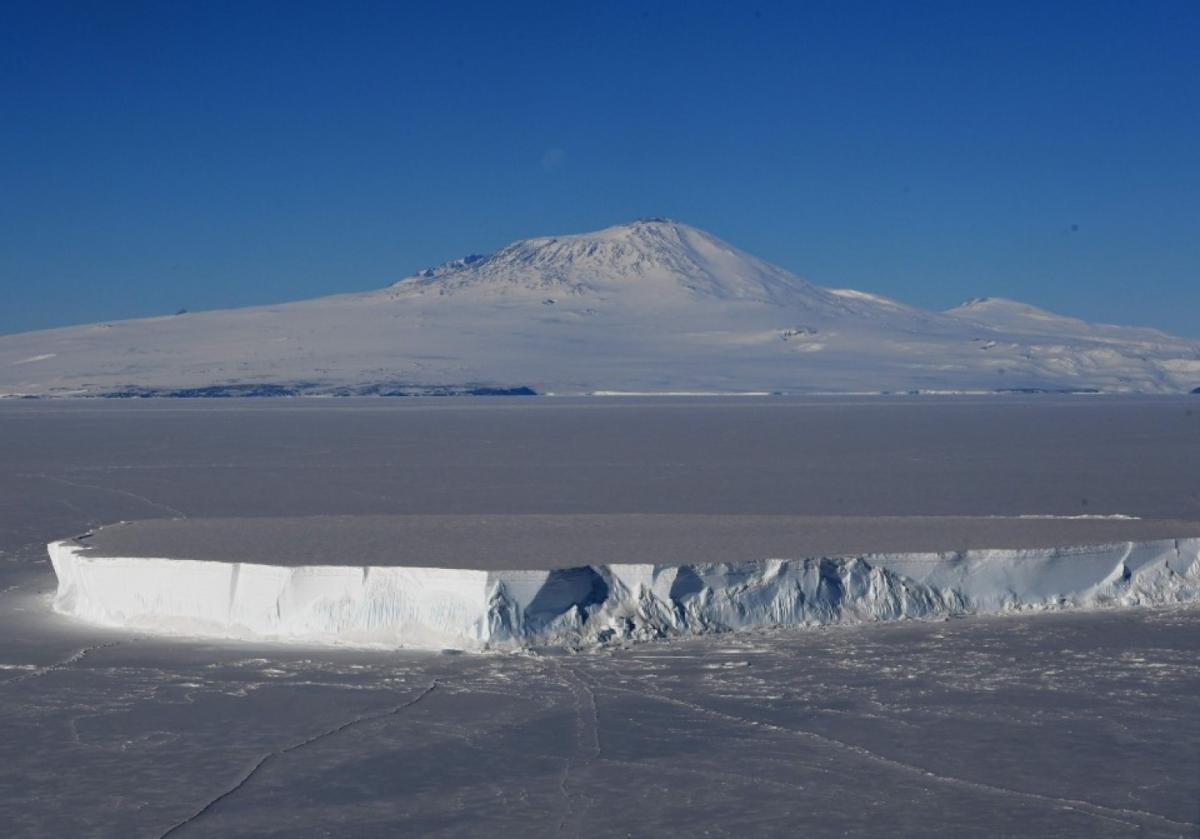You are here
Scientists Just Documented a Massive Recent Melt Event on the Surface of Antarctica
Primary tabs

An iceberg lies in the Ross Sea with Mount Erebus in the background near McMurdo Station, Antarctica, in November 2016. (AFP/Getty Images)
washingtonpost.com - by Chris Mooney - June 15, 2017
Scientists have documented a recent, massive melt event on the surface of highly vulnerable West Antarctica that, they fear, could be a harbinger of future events as the planet continues to warm.
In the Antarctic summer of 2016, the surface of the Ross Ice Shelf, the largest floating ice platform on Earth, developed a sheet of meltwater that lasted for as long as 15 days in some places. The total area affected by melt was 300,000 square miles, or larger than the state of Texas, the scientists report.
That’s bad news because surface meltin g could work hand in hand with an already documented trend of ocean-driven melting to compromise West Antarctica, which contains over 10 feet of potential sea level rise.
READ COMPLETE ARTICLE WITHIN THE LINK BELOW:
https://www.washingtonpost.com/news/energy-environment/wp/2017/06/15/scientists-just-documented-a-massive-melt-event-on-the-surface-of-antarctica/?utm_term=.abd29d4e54a9
CLICK HERE - STUDY - Contribution of Antarctica to past and future sea-level rise
ALSO SEE RELATED ARTICLES WITHIN THE LINKS BELOW . . .
CLICK HERE - Unusual weather in Antarctica leads to rain and a Texas-sized melt
CLICK HERE - MILES OF ICE COLLAPSING INTO THE SEA



Recent Comments